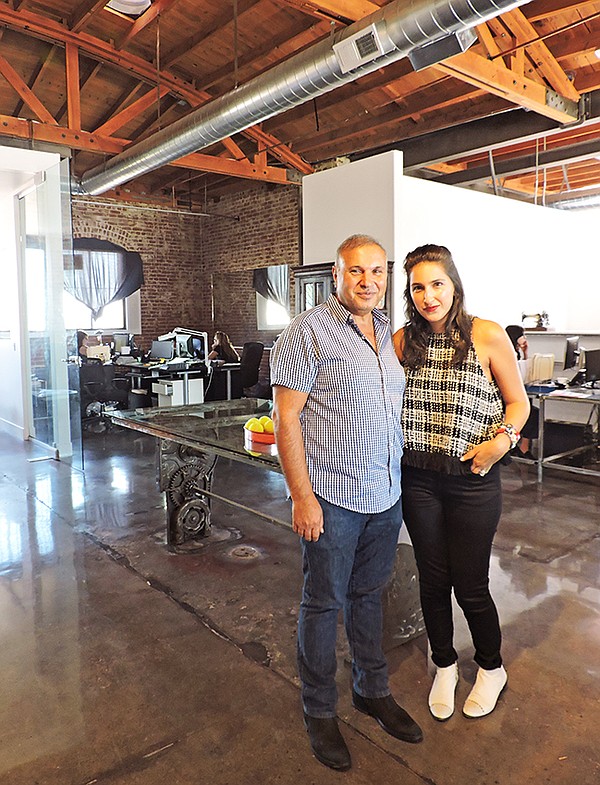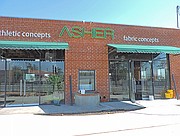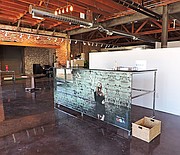ASHER FABRICS
Asher Fabrics Opens New Locations, Adds In-House Knitting
Asher Fabric Concepts has a new home.
The company recently moved into its newly renovated space at 950 S. Boyle Ave. in the Boyle Heights section of Los Angeles.
With 4,400 square feet, the new space gives the company plenty of room to house its staff of 18 and showcase the company’s knit fabric capabilities. Asher’s previous space, on East Seventh Street, was 2,700 square feet.
The new location is meant to be a showplace for the company’s designs and operations, said Asher Shalom, the company’s chief executive officer and president, who founded Asher Fabric Concepts in 1991.
Shalom purchased the building about a year ago. Previously, it housed an auto mechanic shop, and Shalom worked on the renovation for a year to create the new, airy workspace. Red concrete floors were refinished and polished to look like marble. The ceiling was opened to expose the roof frame, and the walls were refinished to expose the interior red brick. On a recent visit, workers were finishing the front patio entrance. Shalom repurposed some of the auto shop’s fixtures into furniture arranged around the new headquarters. A glass-top table features the oversize gears from the garage’s roll-up door.
The new location has 40 spaces for parking and an additional 4,000-square-foot space reserved for quality control and other services. The company will continue to house inventory at its 50,000-square-foot warehouse in nearby Vernon, Calif.
Asher is currently installing six Italian knitting machines in its Vernon warehouse to be used for custom development. The new machines will allow Asher to create fabrics with a smooth face, which are desirable for athletic apparel and other apparel categories. Asher specializes in producing knits for the better contemporary market as well as swim and activewear brands. The company recently expanded its athletic fabric offerings to meet the growing demand from activewear and athleisure manufacturers.
“Eventually, we will have 24 machines in Vernon,” Shalom said, adding that having their own machines will help the company maintain exclusivity over its developments. Asher will continue to work with its subcontractors for production orders.
“They are busy working for us, but we need to do more development for customers,” he said. “Twenty-four [machines] is really not enough. We need 80 machines.”
























